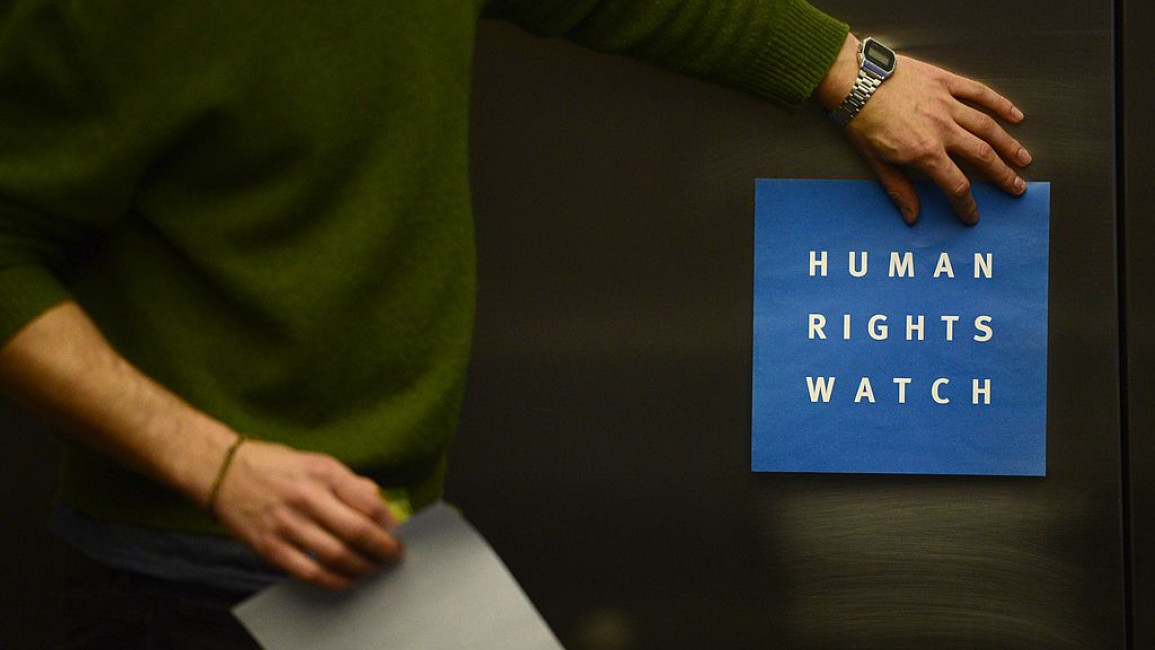Families seeking asylum in UK face 'dire' conditions: HRW
Families seeking asylum in the UK face inadequate living conditions in government-provided temporary housing, affecting their mental and physical health and access to children's education, Human Rights Watch (HRW) said on Thursday.
Releasing a new 100-page report based on joint research with UK human rights group Just Fair, HRW said they found the "dire" living conditions were the result of "longstanding policy failings".
The rights organisations said they interviewed over 50 asylum seekers, including 27 children, who were living in or had recently left temporary housing in England.
Many said they had spent months in temporary housing despite a government target to move families to longer-term accommodation within 19 days, according to the report.
The report said it found that people placed in hotel accommodation were facing "serious habitability problems", including a lack of space, dampness, mould, broken or missing furniture and pest infestations.
It added that families struggle to provide their children with an adequate diet without access to cooking facilities and children face barriers in accessing education as local schools may not allow them to enrol immediately.
"Inhumane and inadequate housing for people seeking safety is never acceptable, and certainly not in the world's sixth-largest economy," said Yasmine Ahmed, UK director at HRW.
"Instead of recklessly wasting resources on grudging, deficient, and short-sighted responses, the UK government should redirect its funding toward suitable long-term housing and social support."
Controversy
The government is trying to reduce what it calls "illegal" migration to the UK – a highly contentious political issue in the country – and is under pressure to stop migrants making dangerous crossings of the Channel in small boats.
It has introduced controversial legislation barring asylum claims by all arrivals via the Channel and other "illegal routes", also mandating their transfer to third countries, such as Rwanda.
But both policies are on hold amid a court challenge over the legality of sending migrants to east Africa.
Children and families seeking asylum in the UK are facing inhumane and inadequate living conditions, harming their health, wellbeing and access to education.
— Emilie McDonnell (@DrEmMcDonnell) September 14, 2023
The govt should ensure everyone in the UK can live in dignity.
New report by @JustFairUK & @hrwhttps://t.co/pRxLQBD3gy pic.twitter.com/uMz6ljvwRb
The UK government is also trying to lower the costs of hotel accommodation for asylum seekers and instead wants to use barges, disused military bases and even tents.
Last month, the UK controversially began housing adult men onboard the "Bibby Stockholm" barge off the southwest English coast but in an embarrassing setback had to remove them within days after Legionella bacteria was found in the water on board.
Human Rights Watch and Just Fair said that "barges, barracks, and similar large-scale institutionalised settings share the serious shortcomings of repurposed hotels and should not be used as asylum housing in the UK".
"Instead, people seeking asylum should be supported to find their own housing in communities they choose and should be allowed to work as long as their cases are being considered, the approach used in the UK until 1999."


![President Pezeshkian has denounced Israel's attacks on Lebanon [Getty]](/sites/default/files/styles/image_684x385/public/2173482924.jpeg?h=a5f2f23a&itok=q3evVtko)



 Follow the Middle East's top stories in English at The New Arab on Google News
Follow the Middle East's top stories in English at The New Arab on Google News


